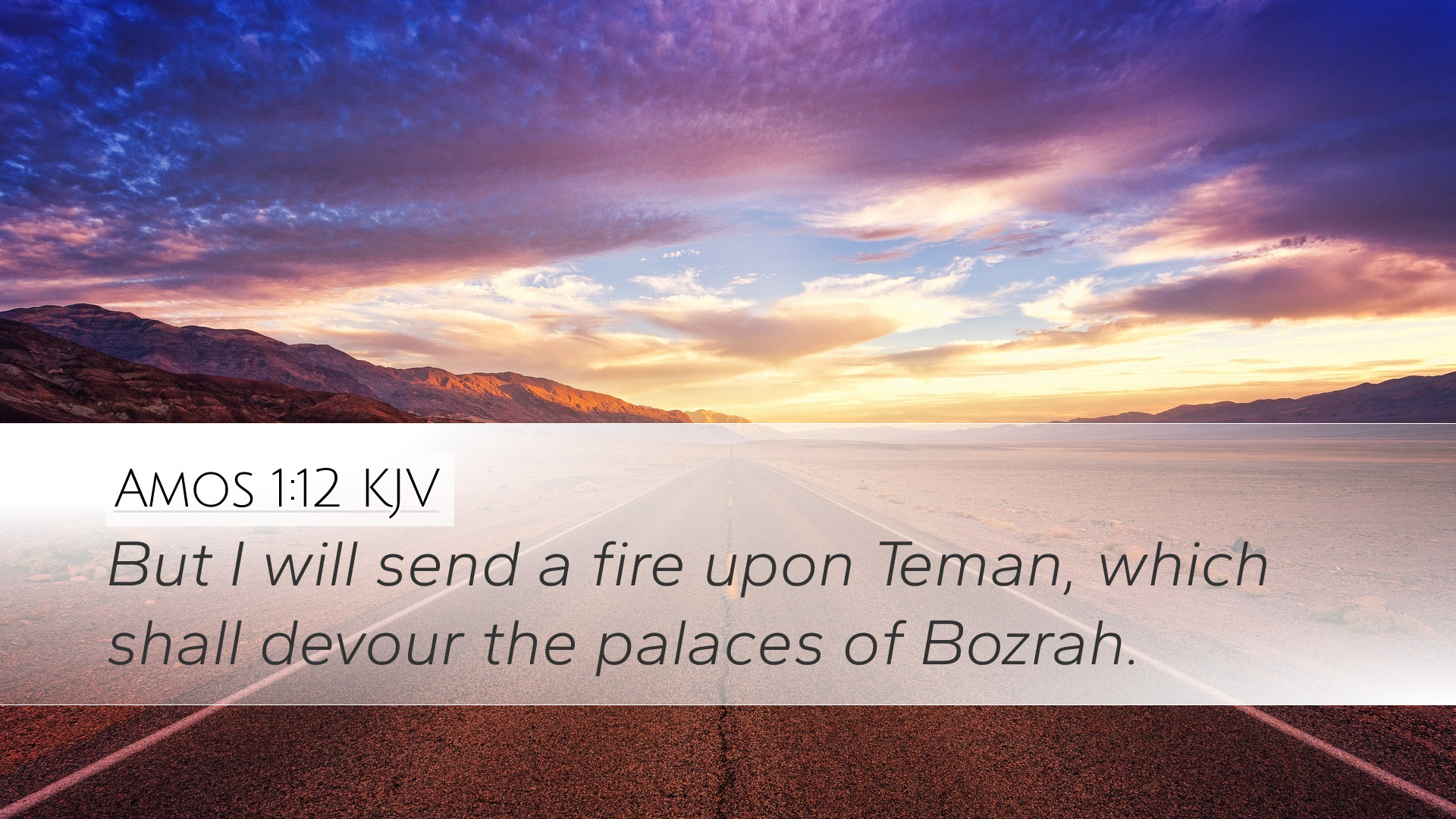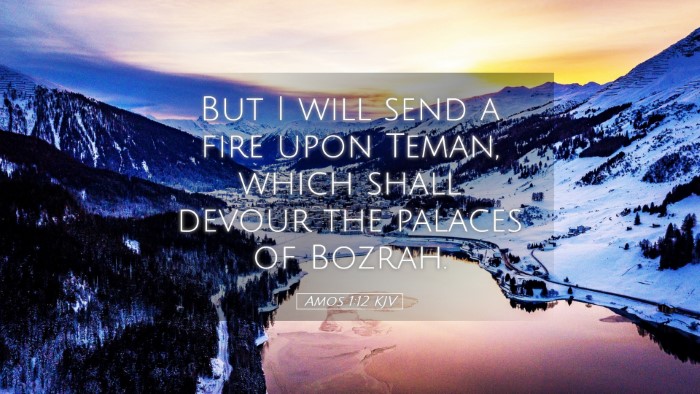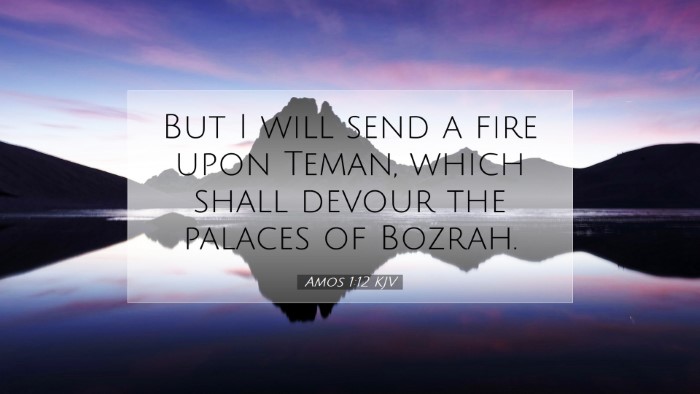Old Testament
Genesis Exodus Leviticus Numbers Deuteronomy Joshua Judges Ruth 1 Samuel 2 Samuel 1 Kings 2 Kings 1 Chronicles 2 Chronicles Ezra Nehemiah Esther Job Psalms Proverbs Ecclesiastes Song of Solomon Isaiah Jeremiah Lamentations Ezekiel Daniel Hosea Joel Amos Obadiah Jonah Micah Nahum Habakkuk Zephaniah Haggai Zechariah MalachiAmos 1:12
Amos 1:12 KJV
But I will send a fire upon Teman, which shall devour the palaces of Bozrah.
Amos 1:12 Bible Commentary
Commentary on Amos 1:12
Amos 1:12 states: "But I will send a fire upon Teman, which shall devour the palaces of Bozrah." This verse is rich in prophetic imagery and carries significant theological weight, serving as a solemn warning to the nations neighboring Israel regarding divine judgment.
Contextual Background
This verse is situated within the wider context of the prophetic oracle against Edom, which is significant both geographically and historically. Teman and Bozrah were prominent cities in Edom, a nation geographically located southeast of Israel. The Edomites were known for their enmity towards Israel, stemming from ancient histories that include fraternal conflict due to their descent from Esau, Jacob's brother.
Thematic Insights
The themes present in this verse can be divided into the following key insights:
- Divine Judgment: This prophetic declaration emphasizes the sovereignty of God in executing judgment upon nations that oppose His will.
- Symbolism of Fire: Fire often represents purification, but in this context, it signifies destruction and judgment, portraying God's fierce wrath against sin.
- Geographical References: The mention of Teman and Bozrah highlights the specific targeting of enemies, instilling a sense of urgency and locality concerning God's message.
Commentary Insights
Examining the interpretations from notable commentaries provides deeper observations:
Matthew Henry
Matthew Henry outlines that Edom's pride and violence against Israel have brought about divine retribution. He emphasizes that God's judgment will not be arbitrary but will come as a result of their own actions, specifically noting their disregard for God's covenant people. Henry posits that the 'fire' proposed here is both literal and figurative, suggesting a complete desolation of the Edomite cities due to their actions against God's chosen nation.
Albert Barnes
Albert Barnes contributes by elucidating the concept of Edom's impending doom through the metaphor of fire as a means of divine retribution. He interprets the fire as indicative of calamity that will lead to the total destruction of Edom’s strongholds. Barnes also points out that Bozrah, as an important city, represents all that Edom holds dear, and thus, its destruction conveys the thoroughness of God’s judgment. Furthermore, it serves as a warning to all nations—an assurance that God will defend His people with judgment against the oppressors who rise against them.
Adam Clarke
Adam Clarke’s discourse on Amos 1:12 adds depth by focusing on the historical implications of the Edomite's character and their rejection of Israel's plight. Clarke interprets 'fire' as a prophetic announcement of a judgment that reflects the consequences of sin, particularly the sin of violence. He emphasizes that the destruction is inevitable and illustrates the severity of God’s intervention in national affairs. Clarke further expounds on the idea of justice being served, as the Edomites cannot escape the repercussions of their actions against Israel.
Theological Reflections
The judgment pronounced in Amos 1:12 serves as an eternal reminder of several theological principles:
- God's Justice and Sovereignty: This verse powerfully highlights the nature of God as a just judge who will not allow injustice to prevail unpunished.
- The Call to Repentance: Though aimed at Edom, the verse serves as a universal call for nations and individuals to surrender to God’s authority and seek reconciliation through repentance.
- The Consequences of Pride: The destruction of Edom begs the question of human arrogance in resisting God's will and the inevitable consequences that follow.
Conclusion
In conclusion, Amos 1:12 is not merely a historical pronouncement but serves as a timeless theological exhortation for all believers. The insights gained from revered public domain commentaries deepen our understanding of the gravity of sin and the inevitability of divine justice. Understanding the circumstances surrounding Edom's judgment can guide pastors, students, theologians, and Bible scholars in their pursuit of truth and their recognition of God’s holy justice throughout history.


